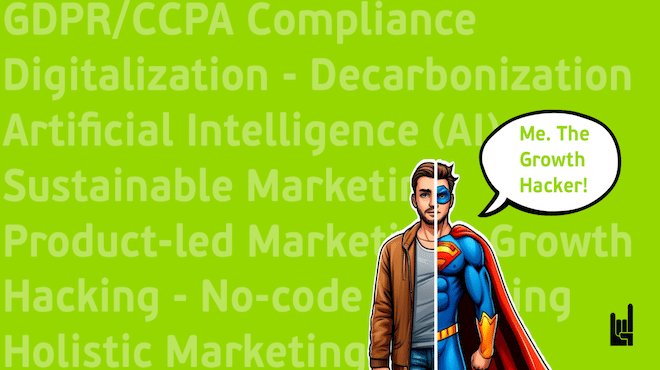Disclaimer: If you read this article because you believe you will wake up one day and your story will be viral – you’ve become a great Content Marketer and have a glamorous writer lifestyle, you’re definitely in the wrong place. Close this tab immediately and do something else instead! On the other hand, if you want to know how we produce content with clear visibility of the message and drive results to our customers, you’re in the right place. Keep reading!
What motivates you to write? Passion? Purpose? Calling? Is it just work and a way to make money, or do you want to write content that affects people?
Not everyone is a writer, but everyone can write! Why is that?! Every person has a story to tell and share with others. But when it comes to writing killer content and reaching thousands of readers, things are entirely different.
Considering that people are flooded with exciting and extraordinary stories and pitches daily, making a “story” stand out from the pack is not as “easy-win” – as you may think.
In the following lines, we’ll focus on the key factors that lead to incredible content creation and our tactics to “spread the news.”
Three (3) essential factors lead to great content production:
Let’s take a closer look at them!
Newsworthiness
First things first. Is your story a story? Is it interesting? Will people inside and outside your business care about it? If the answer to these questions is yes, you might be onto something. If it’s not new, not exciting, and you’re not sure if anyone will care, it might be a good idea to come up with something else. So, the concept of newsworthy content is the one you should be chasing. Remember that not everything is news!
Credibility
Nowadays, people are skeptical about advertising and will be wary of any story that smacks of advertising or one-sidedness. If people suspect that a story is a cover-up or an attempt to put the best side of things, they will not be happy, and guess what? They’ll not give time to read it!
Remember that bare facts, without comment or self-praise, have credibility. So, what is the credibility of content within two words? Trustworthiness and Authority! And these are what you should chase for and put effort into building them!
🔥 Extra tip: Add links within the content! URLs to client websites, product images, and more will help the media quickly access all the information for the story and help everyone involved with SEO.
Uniqueness
Your story has to be unique! It may need much more effort, but it’s mandatory! Unique content is the basis of any successful content marketing campaign. If the content is not exclusive, is not high-quality content, and the most likely is that your campaign will “booom” and negatively impact your SEO and social media marketing.
So, you have to write the story from a different point of view – Whether you are writing a news article, a press release, or an article, try to approach it from a different perspective.
Why do you need to create unique content? There are two significant reasons:
- The SEO payoff is ENORMOUS
- Your content’s value to current and future readers will earn your site an aura of authority.
All you need is to “win” visibility on a search engine!
And how are you supposed to create unique content? It’s straightforward: you need an idea (aka idea generation)! What a shock, right?!
Now that we have the obvious things out of the way, let me share this with you: You already know what you want to create. You know how to make a masterpiece in your chosen profession. All you need to do is to draw out that knowledge in a focused and inspired way!
🔥 Extra tip: If the content is “special” and valuable to readers, this is an opportunity to improve the SEO strategy and gain more links from other websites that will republish your story.
Writing & Formatting
Now that you know the three ingredients you must add to your recipe to create a successful story, it’s time to discuss the writing process and formatting.
Tip 1: Language and vocabulary are all that matter!
Online content, especially on blogs or media, is very temporary. Readers don’t give them much time because they are not usually a high priority. So, they should be scannable and easy to read.
What do you need to do?
👉 Write short paragraphs: help to speed the flow of reading and the ease of understanding. Avoid sales-pitch language and many adjectives, which lose credibility in readers’ eyes.
👉 Use bullet points, sidebars, pull quotes, bold, underlining, lines, and other page structures to make scanning the page more accessible than reading it from start to finish.
👉 Use everyday words and phrases. This is important! Somehow, people think that corporations have a dull, wordy, formal voice. Why? Their employees don’t. So, use the language of everyday speech. So, “do, get, make, build” rather than “develop, obtain, maximize, construct.”
Tip 2: Focus on the 5W
You should tell the readers everything they need to know about. Consider the below bullets as a checklist, and whatever you’re writing, don’t forget to answer the following questions:
- What happened
- Who is the story about
- When did/will it happen
- Where did/will it happen
- Why did/will it happen
Think of as many of your favorite movies or your favorite TV shows. What do they have in common? It’s the storytelling process!
The best example is the Ricky & Morty show. (If you’ve never seen Rick And Morty, this is the time to catch up. It’s a genuinely insane animated sci-fi series about the space adventures of a self-loathing mad scientist and his vaguely pathetic grandson.)
This show takes us to an unnatural world with its unique and remarkable characters and a profound subject in every episode. It also can play with our minds and use a specific narrative pattern in every episode.
So here is a great way to look at a story structure:
- Establish a protagonist in a comfort zone
- Introduce a minor problem and establish a need
- The protagonist makes a significant decision and enters an unfamiliar situation
- Characters adapt to the new situation, and things must change
- The characters get what they wanted
- Paying a hefty price and suffering the consequences
- Undoing the damage and returning to the familiar world
- Having changed
This circle reappears over and over again! It’s not just in storytelling but also in music, sports, and everyday life. It’s not super complicated itself, but its applications are vast. So, learn to tell a good story. That’s what you need to create killer content!
Tip 3: Write a damn good body copy!
The body of your content is essential. Treat it that way.. Look at each piece of content like your baby. Nurtured them, fought for it, and helped it develop.
The product you represent depends on you, and if you allow yourself to take shortcuts or present a less-than-compelling argument, then you’ve failed. So, do your homework and do not write content if you’re not aware of the following:
- Who you’re writing it for
- How that person thinks
- What that person needs
If you haven’t done your research, you’re simply faking it. You don’t target the right audience segment, which will get you in trouble soon!
Last but not least, treat your customers with respect and dignity. You’re on equal footing, or perhaps a bit lower, considering you’re the one who needs the sale. Reflect on that position in your copy, and remember that your potential customers simply want to solve a problem at the end of the day.
🔥 Extra tip: Identify and use keywords that searchers are likely to use when searching for news or products like yours. Keyword research will help you!
Tip 4: Write a killer headline
You only have a few seconds to grab a reader’s attention, so be sure to craft a headline with the following elements:
- Find a concept
- Be creative
So, lead the market with a concept rather than your brand name. Your audience probably doesn’t care about your brand or company name, but they do care about finding a solution to their problem. So, you need to create a compelling concept to draw them in.
When it comes to the headline, be unique and creative! Don’t copy what you see. Use all your hidden-writer-inspired skills to create a headline that stands out. One of the most significant faults is starting to write with your company’s name! (e.g., “Marine Shipping Company, a member of the International Shipping Group…”) – Who cares, apart from the managing director and the secretary, who wrote this?!
Tip 5: The Opening Paragraph
At this point, we need to emphasize the importance of the subject and the opening paragraph, the two features that can guarantee the success of your story.
The subject line should be stated in the first few words, and the story’s point should be stated in the opening paragraph. There are no teasers or clever introductions. The whole story should be blown away right at the beginning.
So, don’t waffle! Nail the story in the first few sentences. Don’t beat around the bush – get the facts out quickly and briefly, and the chances of a story making it from an inbox to an editorial meeting will increase dramatically. Chances are, the readers/ journalists will not have time to read the whole thing, so the quicker you get to the point, the better.
🔥 Extra tip: The opening paragraph should be a sum up of the whole story.
At the end of this journey, I would like to give you some “last-minute tips” to keep always somewhere in your mind:
- The first paragraph must hold and attract the attention of the readers.
- If you have to read three paragraphs before getting to the main point, you have given up before then.
- Write for the readers, and don’t try to sell products
- You are not writing advertising copy. If you do, it is straightforward to be found in the wastepaper baskets of the publishers
- Find the main reason you are telling this story
- Keep your own opinions out of it
The Symbiotic Role of AI in Storytelling
Artificial intelligence (AI) is a dynamic collaborator in the ever-evolving storytelling landscape, not the sole creator. While AI may not be penning novels or scripting dramas from scratch, its role in researching, preparing, and enhancing stories is indispensable. AI assists storytellers by sifting through extensive data pools to unearth hidden patterns and insights, which can significantly enrich the narrative framework. It automates the groundwork—gathering facts, aligning historical contexts, and suggesting plot enhancements based on trending themes or emotional intelligence insights. However, the quintessence of storytelling—creativity, emotion, and personal touch—remains a uniquely human endeavor.
Thus, AI in storytelling is best viewed as a sophisticated backstage tool that amplifies creativity refines narratives, and optimizes engagement, allowing human storytellers to craft more informed, compelling, and resonant stories.
Before you go
People love to tell stories. They don’t go to the coffee house and share press releases, so tell them a unique and exciting story!
To get your story heard, you should think, act, and write like an actual-famous writer. Don’t ask for permission! You don’t need validation from everyone around you to feel what you’re doing is worthwhile. Write what disturbs you, what you fear, what you have not been willing to speak about. Be willing to fail and try new things to write.
Sit in the chair and focus on putting one word after another in order, even if you feel that your words may not be good.
Of course, there are other paths to creating successful stories! I’m sure you have your tricks and tips for writing excellent content, and we would love to hear them! Share them with us in the comment below!
Was this article useful?
Theodore has a 20-year experience in running successful and profitable software products. During his free time, he coaches and consults startups. His career includes managerial posts for companies both in Greece and abroad and he has significant skills on intrapreneurship and entrepreneurship.




